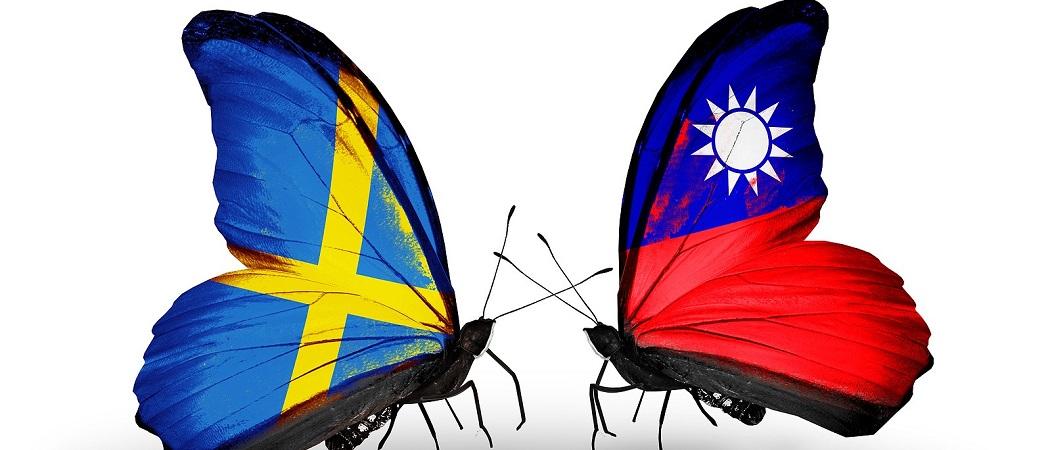First large-scale research cooperation between the two countries is a ‘springboard’ into tech-intensive part of the world

The Swedish Foundation for Strategic Research and Taiwan’s Ministry of Science and Technology have come together for the first time to co-invest €8 million in large scale projects in information and communications technology, bio-engineering and materials science.
The goal of the new partnership is to expose Swedish researchers to opportunities in a booming tech and smart manufacturing neighbourhood, said Lars Hultman, CEO of the Swedish foundation in Stockholm.
“Swedish scientists are not so keen to travel outside of their comfort zone; if they go abroad, they spend much of their time in Germany, the US or the UK, and not so much time in Japan, Korea and Taiwan,” said Hultman, who is also professor of materials science at Linköping University.
Because China claims Taiwan is part of its territory the Swedish government “can’t easily arrange research projects with Taiwan”, said Hultman. Sweden, in common with most of the world, does not have formal diplomatic ties with Taiwan.
“But we saw the potential. I can see clear benefits in the long term for immersing ourselves more into the Chinese language and culture,” Hultman said. “And the added extra is that working with Taiwan can also be a springboard into the Chinese mainland.”
The foundation, set up by the Swedish government, acts as an independent long-term funding body to strengthen the country’s competitiveness in strategic research fields in science, engineering and medicine. It operates on a 15-year look into the future. “We are interested in the eighth ball on the pool table, the one that’s pocketed last,” Hultman said.
After a joint review with Taiwan, the foundation last month awarded funding to six projects involving 23 Swedish scientists and 14 Taiwanese counterparts.
The Swedish side will put in €6 million for research over the next five years. Taiwan will top this up with roughly €2 million.
“It’s a complementary deal; the Swedish have the cutting edge in life sciences, Taiwan in microelectronics,” said Hultman.
The collaboration will focus on areas such as lithium batteries, antenna technology for 5G wireless communication, biomolecular sensors and quantum optoelectronics devices, and a chip-size accelerator for material research and health.
Taiwan's Ministry of Science and Technology hopes the deal will be a “new model for transnational scientific research cooperation.” The country of roughly 23 million has earned widespread praise for its response to the COVID-19 pandemic, and is looking to research ties abroad to further upgrade its image as a go-to place for manufacturing expertise.
On the Taiwanese side, the research teams will be drawn from a number of universities, including the National Taiwan University, National Tsing Hua University and National Chiao Tung University.
Sweden's researchers will come from Uppsala University, Chalmers University of Technology, the KTH-Royal Institute of Technology and Linköping University.
Hultman foresees difficulties creating new research links in the coming years while manoeuvring COVID-19 enforced travel bans. “But I’m a strong believer in people seeking to work together,” he said. “If some roads are barricaded, the ideas will persist and the people will prevail in finding other routes to work together.”
Developing ties with Taiwan means navigating China’s tricky politics. Under its One China policy, Beijing insists it is the legitimate ruler of Taiwan and that it will one day bring the island back under the leadership of the mainland.
China’s move this week to strengthen its grip on Hong Kong, a semiautonomous territory, via controversial new security rules, will give Taiwanese leaders fresh cause to fear they could be next.
Hultman says he hopes that pragmatic leaders will ensure that the potential for science collaboration is not damaged.
“If Hong Kong universities feel they are being limited, then their research advantages may shift to other parts of the world. There will be some [desire] then from leaders to look at the balance sheet to see what their people have the potential to lose,” he said.





 A unique international forum for public research organisations and companies to connect their external engagement with strategic interests around their R&D system.
A unique international forum for public research organisations and companies to connect their external engagement with strategic interests around their R&D system.